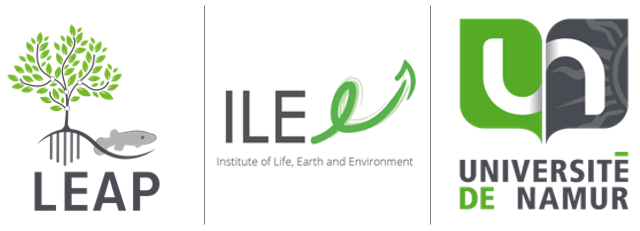Unlike most biologist I know, choosing this field of study was not obvious. At the end of high school, all the study possibilities seemed exciting to me: journalism, economics, nursing, law and so on. I ended up taking Biology because I enjoyed it in my final year, so I gave it a chance. And from the very first weeks, I loved it, and each new area of biology interested me even more than the previous one. Physiology, genetics, behaviour, ecotoxicology and even biochemistry fascinated me.
Following my bachelor at UNamur, I choose the Master “Biology of organisms and ecology”, co-organized by UCL and UNamur, with a focus on conservation biology and genetics. For my master thesis, I studied the sexual conformism through imprinting in Bicyclus anynana – an African butterfly – females mating preferences. In practice, I have reared over 1000 butterflies in the laboratory and conducted behavioural experiments to determine changes in sexual preferences. Strong enough, the results led to the writing of my first article.
Then, for my master’s internship, I left Belgium 5 months to join the 20 years-old “Flycatchers project” of Uppsala University (Sweden). On the one hand, we analysed blood samples from pied and collared flycatchers to detect any malaria infection and related the results to several environmental parameters. On the other hand, we spent two months on the island of Öland to closely monitor populations of both pied and collared flycatchers. We mainly took biometric measurements and blood samples and also realised swapping experiment. The fieldwork was intensive but extremely interesting and allowed me to develop a whole range of new skills.
After these two amazing projects, I came back to my favorite city – Namur – to start a new one : being a teaching assistant and a PhD student in the Laboratory of Evolutionary and Adaptive Physiology. The teaching part of my work consisted of varied practical courses, from Animal biology to Physiology and Statistics, mainly for 2nd and 3rd year students. I hope to be as inspiring as the assistants I had.
My PhD subject is supervised by Pr. Frederic Silvestre and is about the characterisation of changes in the DNA methylation levels over time in the naturally isogenic mangrove rivulus. Kryptolebias marmoratus, in addition to its outstanding environmental adaptability, is the only vertebrate capable of self-fertilization. During my thesis, I will study epigenetic modifications, focusing on methylation, according to three temporal scales: individual, with the determination of the epigenetic clock (the changes of DNA methylation during ageing), transgenerational, with the follow-up of three generations after an exposure to a neurotoxicant, and populational, with the long-term study of methylomes of wild populations. These three scales allow us to answer distinct but interrelated questions about the stability of epigenetic marks in a population where genetic variation is very low, and combine laboratory and field work.

